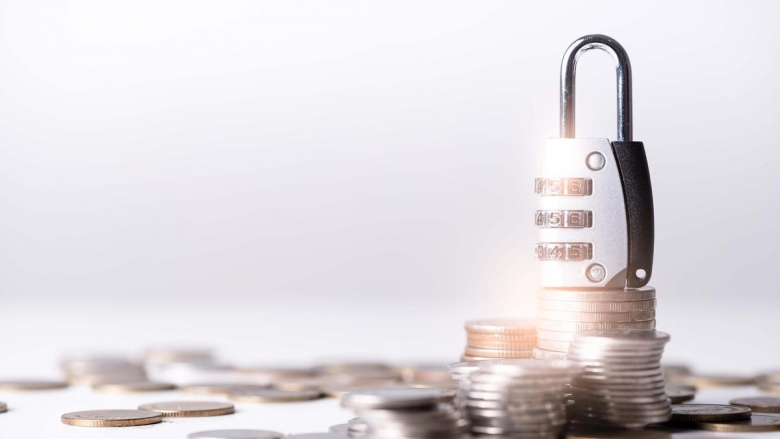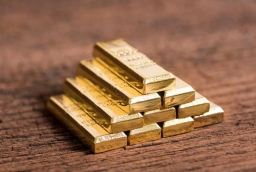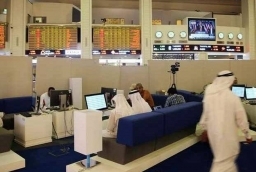With the threat of a global recession looming, building an emergency fund and diversifying investments are key
We live in uncertain times and right now, that uncertainty seems to be on the rise. After a decade of growth, the threat of recession is looming.
This makes now a good time to take a good look at your finances to see how well you are prepared for an economic slowdown. Here are six things you must do now:
Build an emergency cash fund
Shoring up your defences against a potential financial disaster is key, even in the good times, says Ambareen Musa, founder of Dubai-based price comparison site Souqalmal.com. “Economic ups and downs are inevitable. You can’t prevent an economic downturn, but you can be prepared to deal with it,” she says.
For many, the biggest fear in a recession is losing their job. “Everybody should ask themselves this question – can you cope with a temporary loss of income? This is where the emergency fund comes in.”
Ms Musa says you should build enough savings to cover all of your basic living expenses for at least six months. “Think of it as a financial back-up plan to see you through unexpected financial hardship.”
Stash your emergency fund in an easy access savings or deposit account, so can get your hands on it in a hurry, Ms Musa adds. “And if you have to tap into it for any reason, replenish it soon after.”
Pay down your debts
Losing your job is an even bigger worry if you have mortgage, loan or credit cards debts, particularly in the UAE where default is not really an option.
Ms Musa says: “Imagine losing your job and having to worry about debt repayments on top of putting food on the table.”
Tackling your debts now, especially costly ones such as high-interest credit card debt, can prevent them from getting out of control later.
Act before any recession or slowdown, as options such as debt relief or consolidation may get harder to access afterwards. “If you need to negotiate a restructured repayment plan with your lenders, it’s best not to delay,” Ms Musa says.
Getting your debts under control will also protect your credit score and make it easier to borrow money in hard times. “Lenders get pickier when defaults go up, so your chances of success are much higher if you have a good credit score,” Ms Musa adds.
Always pay loan instalments and credit card bills on time and avoid maxing out your credit limits.
Diversify your investments
This may now be the longest bull stock market in history but it will not last forever so make sure your retirement portfolio is properly diversified.
Such a portfolio should include a spread of different asset classes, such as shares, bonds, cash, property and gold, with exposure to different countries, sectors, commodities and currencies, to reduce your exposure to any single asset or sector.
Stuart Ritchie, director of wealth advice at financial advisory group AES International, says it should also reflect personal factors such as your age, investment goals, attitude to risk and how long until you retire.
You may have to rebalance from time to time, for example, the runaway success of the US stock market means that many may be overexposed to the country.
Mr Ritchie says too many expats pursue complex investment strategies or exotic investments such as cryptocurrencies, and rack up unnecessary fees by constantly buying and selling. “True diversification involves building a balanced portfolio and largely leaving it alone, while rebalancing or reviewing it periodically. ”
Low-cost exchange traded funds (ETFs) can give you exposure to almost every global asset class, market or commodity.
Mark Chahwan, co-founder and chief executive of Sarwa, the first robo-adviser regulated by the Dubai Financial Services Authority, says don’t panic if share prices fall. “Periods of volatility are inevitable. If your goals haven’t changed, stick to your plan.”
Stay healthy and get insured
Resist the temptation to save money by going without valuable cover such as life insurance and critical illness cover, says Demos Kyprianou, a board member of SimplyFI, a non-profit community of personal finance and investing enthusiasts. “If you have dependents who would struggle financially if you were to die, then you need to take out life insurance.”
You can protect family members from the financial impact of serious illnesses such as a cancer, heart disease or stroke with critical illness cover, or term life insurance, which both pay a cash lump sum should the worst happen.
Insurance is even more important in a recession, Mr Kyprianou says. “Death and illness can strike at any time, but it would be worse if, say, your spouse also lost their job or had to take a pay cut.”
But shop around, he warns, and speak to a trustworthy adviser and read the terms and conditions before signing anything.
As well as taking out insurance, you need to look after yourself. “Exercise, eating a healthy diet and getting regular check-ups will boost your quality of life and reduce your insurance premiums, as you will be less likely to claim.”
Mr Kyprianou adds: “Shop around, speak to a trustworthy adviser, and read the terms and conditions before signing anything.”
Reduce the risk profile of your portfolio
Source:The National.






 "}
"} "}
"}
